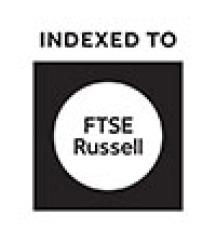Though they be but little, small caps are fierce. In mid-September, the Russell 2000 (RUT) index of U.S. small caps was outperforming the Nasdaq 100 (NDX) by 4.31%. That was among the best mid-month showings for the Russell 2000 vs. the Nasdaq 100 in two years, and from September 1 through October 28 RUT posted a 6.12% performance advantage over NDX. The small caps bounce may be a sign that investors are looking beyond lockdowns and the pandemic, as smaller companies have tended to prosper more when the economy is hitting on all cylinders.
According to a Bloomberg report on September 12, data from the preceding five days showed investors pulling more than $3.2 billion from one fund that tracks the Nasdaq 100, while increasing inflows to the iShares Russell 2000 ETF (IWM) fairly consistently throughout August and early September.1 The same Bloomberg report notes that analysts are increasingly feeling good about the outlook for small caps – and that, while not exactly cheap, small cap valuations still appear more reasonable than those of large caps.
Overall, ETFs are having a year to remember. On October 23, YTD inflows stood at $359.1 billion, an amount far ahead the total for all of 2019 ($326 billion, which was the second highest one-year total on record). This year could well end up being the biggest to date for ETF inflows. For that to happen, $476.1 billion of inflows in 2017 will need to be surpassed.2
Looking to ETFs to punch above weight
The late summer and early fall bump for small caps was in part a reaction to some body blows received by large cap celebrities, specifically tech, after they’d outperformed for much of the year. Tech in particular was overcrowded, and as they looked to diversify and make strategic allocations in response, asset owners leaned into small caps. For some investors, that meant using ETFs such as IWM and the iShares Russell 2000 Growth ETF (IWO). Investors have shown a growing inclination to take such a route in the past, and their belief in the utility and cost efficiencies of ETFs shows no sign of waning. According to Greenwich Associates, 33% of institutions have used ETFs to replace individual stock positions, and 70% have used ETFs for strategic allocations.3 It’s worth noting here that the Russell 2000 Index has $1.6 trillion in U.S. Small-Cap Equity AUM benchmarked to FTSE Russell.4
For an asset owner to quickly and easily make a major move into small caps, ETFs can be a flexible and focused option. Consider this example: A portfolio manager at a large foundation sees opportunity in small caps, and wishes to buy 100 individual stocks for its $100 million small-cap core allocation. Right out of the gate, brokerage and transaction costs for each trade seem daunting – and series of such transactions introduces the burden of manual rebalancing. For $100M trade size to a total of 100 individual small-cap stocks, the asset owner is looking at 20 bps in costs, an average spread of 42 bps.5 Juxtapose those numbers versus making the same allocation to IWM: the cost is 4 bps for the $100 million trade size, with an average spread of 1 bps.6
Determining costs prior to trading
Institutional investors can face challenges when it comes to ETF trading, where the associated costs can often be difficult to estimate. The iShares Pre-Trade Tool is one of the first tools specifically designed for ETFs – incorporating both the liquidity of the ETF and its underlying basket of securities.
The iShares Pre-Trade Tool features Blackrock proprietary trade cost models for both equity and fixed income, helping investors estimate trade costs across globally domiciled iShares ETFs and their underlying assets.
So, in the example above,7 the portfolio manager could use the iShares Pre-Trade Tool to help determine the best trading strategy for replacing individual stocks with the iShares Russell 2000 ETF (IWM). IWM provides access to a diversified basket of small-cap stocks in one simple, cost-effective trade, and rebalances semi-annually.
With this option, the manager pays a brokerage fee at the time the ETF is purchased and sold. The manager no longer incurs the brokerage and transaction costs for individual securities and portfolio rebalancing.
The ease with which costs can be estimated prior to trading matches the well-known ease of use that underscores the ETF experience across the board, and makes an already efficient process even more efficient.
Learn more about tools you can use for significantly large or complex trades.
Check-out FTSE Russell’s latest blog “The Russell 2000 outperforms in October malestorm” and “The Russell 2000 Quarterly Chartbook”.
For more details on the iShares Russell 2000 ETF (IWM) and iShares Russell 2000 Growth ETF (IWO) visit iShares.com.

1 https://www.bloomberg.com/news/articles/2020-09-12/small-caps-emerge-relatively-unscathed-in-megatech-bludgeoning
2 https://www.etf.com/sections/weekly-etf-flows/weekly-etf-flows-2020-10-22-2020-10-16
3 9th Annual Greenwich Associates Institutional ETF Study, 2019. Based on 64 and 144 U.S. respondents respectively. Usage figures come from a survey of asset managers, insurers, consultants, and institutional funds
4 FTSE Russell as of 12/31/18.
5 BlackRock as of 11/18/2020. All trade costs are estimates and not guarantees and represent one-way buys. Average spread is estimated by the average bid/ask spread.
6 BlackRock as of 11/18/2020. All trade costs are estimates and not guarantees and represent one-way buys. Average spread is estimated by the average bid/ask spread.
7 Case study shown for illustrative purposes only. This is not meant as a guarantee of any future result or experience. This information should not be relied upon as research, investment advice or a recommendation regarding the iShares Funds or any security in particular.
Carefully consider the Funds' investment objectives, risk factors, and charges and expenses before investing. This and other information can be found in the Funds' prospectuses or, if available, the summary prospectuses which may be obtained by visiting www.iShares.com or www.blackrock.com. Read the prospectus carefully before investing.
Investing involves risk, including possible loss of principal. Small-capitalization companies may be less stable and more susceptible to adverse developments, and their securities may be more volatile and less liquid than larger capitalization companies. There can be no assurance that an active trading market for shares of an ETF will develop or be maintained.
This material represents an assessment of the market environment as of the date indicated; is subject to change; and is not intended to be a forecast of future events or a guarantee of future results. This information should not be relied upon by the reader as research or investment advice regarding the funds or any issuer or security in particular. The strategies discussed are strictly for illustrative and educational purposes and are not a recommendation, offer or solicitation to buy or sell any securities or to adopt any investment strategy. There is no guarantee that any strategies discussed will be effective.
Index performance is for illustrative purposes only. Index performance does not reflect any management fees, transaction costs or expenses. Indexes are unmanaged and one cannot invest directly in an index. Past performance does not guarantee future results. Index performance does not represent actual iShares Fund performance. For actual fund performance, please visit www.iShares.com or www.blackrock.com.
The iShares Pre-Trade tool is provided on an "as-is" basis. BlackRock expressly disclaims all warranties, express or implied, statutory or otherwise with respect to the tool (and any results obtained from its use) including, without limitation, all warranties or merchantability, fitness for a particular purpose or use, accuracy, completeness, originality and/or non-infringement. In no event shall BlackRock have any liability for any claims, damages, obligations, liabilities or losses relating to the tool including, without limitation, any liability for any direct, indirect, special, incidental, punitive and/or consequential damages (including loss of profits or principal). No proprietary technology or asset allocation model is a guarantee against loss of principal. There can be no assurance that an investment strategy based on the tools will be successful.
The iShares Funds are distributed by BlackRock Investments, LLC (together with its affiliates, “BlackRock”).
The iShares Funds are not sponsored, endorsed, issued, sold or promoted by Russell, nor does this company make any representation regarding the advisability of investing in the Funds. BlackRock is not affiliated with Russell.
BlackRock Investments, LLC distributor, not afiliated with FTSE international Limited or Frank Russell Co.
iSHARES and BLACKROCK are trademarks of BlackRock, Inc., or its subsidiaries in the United States and elsewhere. All other marks are the property of their respective owners.
FOR INSTITUTIONAL USE ONLY – NOT FOR PUBLIC DISTRIBUTION
ICRMH1120U-1353093-1/1






